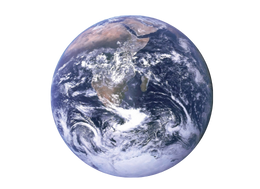You have no doubt heard “You are what you eat”. Another saying “What you see is what you become” has ancient roots.
In essence, this means that our interface with the world around us is adaptive. Whatever we experience, the company we keep, and our environment, shape our future.
Note this article is available as an Audio file and PDF document.
Of course, this is not the whole story. Our capacity to be selective, to maintain our core values is of the essence. This is not so much a matter of intellectual consideration, but a matter of maintaining our deepest inner sense of self as cycles of experience, thought, and action continuously roll on through each day. It is also a matter of preserving what we already know to be good and useful.
In the modern world, our range and means of experience have been greatly extended and altered. Via the universe of multimedia, not just the whole world has entered our living room as Marshall McLuhan suggested in the 60s, but, as he also predicted, our capacity to interact with the world from our living room has multiplied.
Bombarded with ubiquitous technology-driven advances, it is easy to feel either overwhelmed and/or grateful for the assistance, and then relinquish some of our control, handing it over to the mindless technology itself.
Is ChatGPT Gradually Crippling Our Capacity to Think and Write
In a conversation with a neighbor graduating from high school this year, they blithely admitted that everyone at school uses chatGPT to assist with the completion of school work. What was not perhaps understood is that the use of chatGPT in this way is gradually crippling our capacity to think and write originally. Someone or something else is gaining control.
The content of our experience is now changing so rapidly that it is almost impossible to be selective. The ingredients of processed food, the particulates in the air we breathe, the products we are encouraged to consume, the ideas we are bombarded with, and the promises of those in authority have begun to resemble such a jumbled overlapping mess that we are often grateful to merely survive each day as it passes.
We are all aware that the pandemic has come as a watershed in this rush toward a technological future. For many, pandemic policy has been a kind of relief. We have been told what to do and how to do it. We have been forcefully told what works and what doesn’t. For some, these boundaries have introduced a kind of rigid order and certainty to impending chaos.
This style of absolute control has now invaded every social space and means of communication. We are daily being urged or rather instructed to re-evaluate our concepts of gender, national sovereignty, human rights, food, war, religion, transport, housing, health, and money, to name but a few. The tone is strident and dismissive of nonconformity. A tone that has been readily integrated into both political and social conversation, redefining families, friendships, and political allegiances.
However, it is gradually being realized by an increasing number of people that something has gone terribly awry. Things are not making sense. It is becoming hard to understand what is happening and why. There is a discrepancy between our personal everyday experience and the behaviors we are being encouraged to adopt, between the bare bones of the daily news and its interpretation:
- Three years ago, cows were good for New Zealand, now they are bad—we have it on the good authority of people who use private jets to stay in touch with their mates.
- We have to watch long programs on the internet to decide what is a woman, and if we do so, we might be labeled a right-wing extremist.
- Growing up, we were told to avoid eating bugs from the garden; tomorrow we will have to eat them to save the planet.
- A pharmaceutical cure for cancer is just around the corner, although yesterday AstraZeneca had $28 billion wiped off its stock value when its much hyped cancer cure failed at trial—apparently it doesn’t work.
Sound familiar?
Nothing is more puzzling than the silence in the face of rapidly rising excess deaths affecting people of all ages. Well, perhaps there are some things more puzzling, and they are the pseudo-explanations being offered in the popular press.
Is It the Vaccine or is It the Pizza?
A medico recently had a cardiac event after consuming two slices of pizza. He is warning us to limit ourselves to a maximum of one slice, and that rarely. If you are interested to find out what is in store for those chancing more than one slice, take a look under the hood of one of New Zealand’s most popular pizza destinations Dominos.
The Therapeutic Products Bill is continuing its way through the parliamentary process unopposed, so we are supposed to feel confident that Dominos’ ingredients are fully approved and therefore safe, but what are they? I’m going to rely on the published US list, although the New Zealand version hopefully may vary.
It turns out you do get a good bang for your buck. There are a total of over 50 ingredients. You will be relieved to hear that Dominos pizza contains tomato, flour, salt, water, yeast, and cheese, but what else?
The cheese is made of milk, cultures, salt, enzymes, modified food starch, cellulose, whey protein concentrate, flavors, and sodium propionate
The crust from wheat flour, niacin, iron, thiamine mononitrate, riboflavin, folic acid, soybean oil, sugar, salt, whey, enzymes, maltodextrin, dextrose, sodium stearoyl lactylate, ascorbic acid, L-cystine mono hydrochloride, and yeast
The sauce is made from tomato, onions, sugar, romano and parmesan cheese, carrot, salt, celery, garlic, spices, butter, olive oil, citric acid, sunflower oil, flavor, and xanthan gum.
Are two slices of this enough to give you a heart attack, or is it the vaccine? You decide.
Food Technology is Changing Rapidly Without Our Knowledge
Seriously though, this story illustrates the sort of dilemmas that face us every day. Food technology is changing rapidly without our knowledge. What used to be part of the healthy Mediterranean diet can now be a cocktail of industrial chemical constructions fully approved by government regulators, and that is just one among the thousands of ways technology is stealthily changing everything that our parents did and valued.
So how do you stand up to the relentless pace of technological change, and why is it so hard to avoid meek acceptance?
Cell phone technology use appears to be contemporaneous with the growth of mental illness. It may be causally associated, or it may not. The point here is that research on the long-term safety of novel technology is seldom funded or undertaken. Take the case of artificial sweetener aspartame found in thousands of products. More than forty years after its introduction, a WHO report has finally recognized it as “possibly carcinogenic to humans.”
There is already sufficient research to indicate that the whole agenda of biotechnology experimentation is misguided, risky and reckless as we have discussed at length in numerous articles published at GLOBE.
Therefore nothing is more concerning than the march of biotechnology into medicine, along with the now orthodox view that all of us should be forced to participate. Biotech is promising to create a new form of healthcare, but it appears to be riding ahead guided by an incomprehensible lack of logic rather than that of unbiased scientific research. The reality of excess deaths is so far away from the wild imagination of a disease-free society, that biotechnology experimentation should have been closed down years ago. But apparently, almost nothing can stop the allegiance to the new medicine, even death.
Biotech vaccines can damage not just physiological health, but inescapably psychological health as well. Could they be harming the capacity to stay in touch with our self ? Biotech interventions certainly alter who we are on the fundamental level of the cell—the starting point of life. Therefore our psychophysical independence as individuals could be under threat from a uniform immune response being enforced by genetic editing.
Are uniform genetic interventions affecting billions of people inevitably accompanied by shared opinions out of kilter with experience and data? It is time to take back control of our future. Global legislation outlawing biotechnology experimentation is urgently needed. Your choices and your voices can make a difference.
Guy Hatchard, Ph.D., was formerly a senior manager at Genetic ID, a food testing and certification company (now known as FoodChain ID).
Guy is the author of Your DNA Diet: Leveraging the Power of Consciousness To Heal Ourselves and Our World. An Ayurvedic Blueprint For Health and Wellness.





